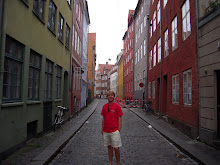
The means and the way by which the two riders, played by Peter Fonda & Dennis Hopper, traverse the American wasteland, set in motion the film’s definition—or, rather, commentary—of the state of freedom. They are drug runners, jumping the border to Mexico to score cocaine, and then carrying it to LAX for delivery. With the money made, they embark upon a trip without a destination: they simply have money, drugs, motorcycles and a general dissatisfaction with their current surroundings. They reject time, evidenced by Wyatt’s tossing of his watch on the desert ground. At a broader level, they are rejecting structure; director Hopper visually connects this theme by employing an alternating jump cut between scenes that creates an appropriately jarring rhythm to the narrative.
And the two aren’t the only ones joining together in this rebellion. Along the way, they make a pit stop at a farm run by a white man with a Mexican wife, with whom he has what could be described as a litter of children. They pick up a similarly jaded, city-bred passerby that just wants to be “a long way away” from his hometown. They also stop at a self-sustaining hippie commune that, ironically enough, has to reject visitors because there are simply too many people and not enough food. Finally, they pick up a third traveler, George Hanson, who becomes, one could argue, the voice of the duo, providing the thoughts of the often-silent Wyatt. “This used to be a helluva good country. I can’t understand what’s gone wrong with it,” Mason muses.
The structuralized society the duo, as well as many of the people they meet along the way, rejects also rejects them. One of the film’s first moments is the two being turned away from a run-down motel. While riding through a small town, Wyatt & Billy get thrown into jail for illegally participating in a parade. Jail is where they meet the well-connected-but-alcoholic Hanson. Later, a small town diner refuses to serve them, its customers ignorantly insulting them for their dress and demeanor—though the girls do flock.
Thus, on this trek, all three men find those that grasp for the same strands of freedom as well as those that are too afraid of addressing life’s deeper questions. By mere image, mere surface, our heroes frighten those in developed society. Hanson relates that they are “scared of what you represent to them…what you represent to them is freedom.” Hanson continues, making a larger commentary of society: “it’s real hard to be free when you’re bought and sold in the marketplace.” A core message of the film, this highlights the main struggle of the characters: to be free in a world that doesn’t easily permit it. Mason, perhaps because of these beliefs he holds, meets a horrific fate when locals from a small, ignorant town come to the group’s campsite and beat him to death in his sleep.

This connection between the morbid and the free exists throughout the film. By Hanson’s logic, he was murdered by those who are scared of his freedom. One of the early campsites is at an Indian burial ground. The trio drives by a cemetery in the middle of their journey, prompting a music change and ominously alluding to what is soon to happen. Near the end of the film, when Wyatt & Billy finally make it to New Orleans, the intertwining of freedom and death becomes even stronger. The “right place” to do the acid that Wyatt has held onto for the majority of the film, is in a cemetery. This trip spirals into an avant-garde, chaotic combination of visuals and music. The characters partake in a bizarre and horrifying mix of sexual escapades, religious prayer, and crazed moaning. Amidst the madness, director Hopper provides a glimpse into the fatalistic end of the film. Freedom has climaxed in a place of death.
So it’s no surprise, then, that our heroes have a tragic trajectory. When they are uselessly shot and killed by a hillbilly in a game-like fashion, it finally cements the notion of being free with one’s mortality. “They only wanted to be free,” the music croons at the film’s close. The society Wyatt & Billy were a part of, however, not only left the two at odds (“we did it,” proclaims Billy; “we blew it,” proclaims Wyatt), but also was one that restricted an ideal of freedom.

No comments:
Post a Comment